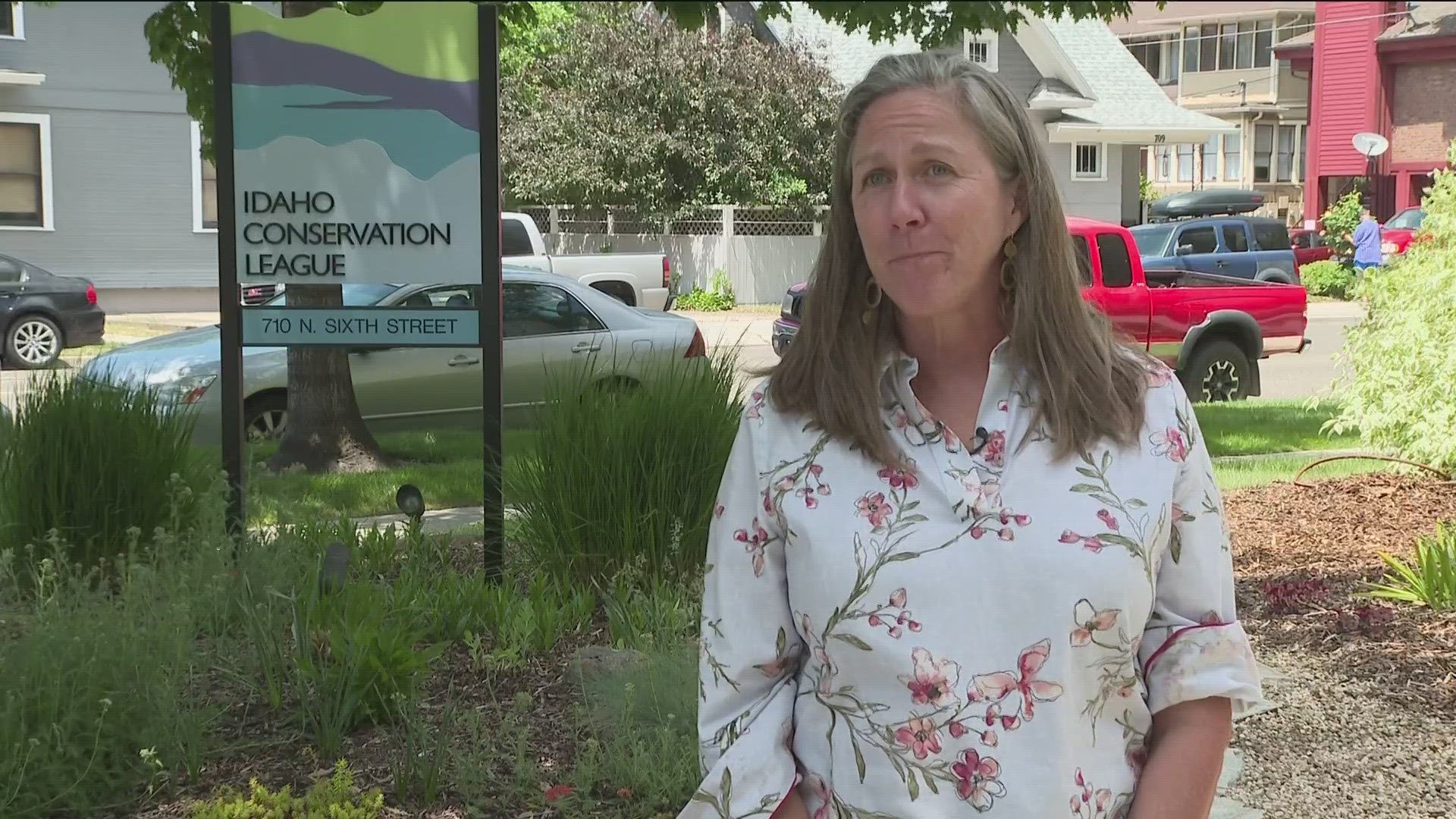IDAHO, USA — The U.S. Supreme Court (SCOTUS) ruled unanimously against the Environmental Protection Agency (EPA) in Sackett v. EPA regarding the enforcement of the Clean Water Act.
The case, dating back 15 years, debated whether Sackett's property - near Priest Lake in north Idaho - was subject to Clean Water Act regulations after the EPA labeled the property a wetland that eventually flowed into the nearby lake. The Sackett's wanted to build a house on the property; the court ruling assures their right to do so without a costly EPA permit, according to the Mountain States Policy Center (MSPC).
The Clean Water Act has been federal law for more than 50 years with a focus on keeping waterways swimmable and fishable.
"However, it's come with a lot of complications and a lot of ambiguity that the average citizen wouldn't be able to sort through," MSPC Policy Analyst Madi Clark said. "Somebody that might have, honestly a puddle on their property, the EPA can come in and say, 'no, it drains into this canal, which drains into the stream, which drains into this river, and thus, we have standing.' That's how it's been."
To curb this concern nationally, SCOTUS outlined a test to define 'adjacent water' that the EPA can regulate under the Clean Water Act. The test, supported by a 5-4 split, defines adjacent water as "continuous surface connection."
The Idaho Conservation League (ICL) opposes this test on the basis that it does not align with science.
"If we can't see it on top of the ground, it's not connected, and we know that not to be true," ICL Conservation Program Director, Marie Callaway Kellner said. "This is essentially an opportunity for people that need to get rid of waste somewhere. To get rid of it with no culpability, they can do that now, because there's nothing keeping them from doing it."
The test, at the minimum, clearly defines who is under regulation, according to the MSPC. For that reason, they see ruling as a step forward.
"It is not a loss of environmental integrity. It's our ability to finally provide citizens with the tools they need to determine if [the Clean Water Act] even applies to their own private property, and to not burden them with catastrophic costs and fines that it could be leveled by the EPA," Clark said.
ICL contends the definition of laws should be the job of Congress; Justice Brett Kavanaugh dissented from the other conservative justices in support of the new test.
Join 'The 208' conversation:
- Text us at (208) 321-5614
- E-mail us at the208@ktvb.com
- Join our The 208 Facebook group: https://www.facebook.com/groups/the208KTVB/
- Follow us on Twitter: @the208KTVB or tweet #the208 and #SoIdaho
- Follow us on Instagram: @the208KTVB
- Bookmark our landing page: /the-208
- Still reading this list? We're on YouTube, too:

